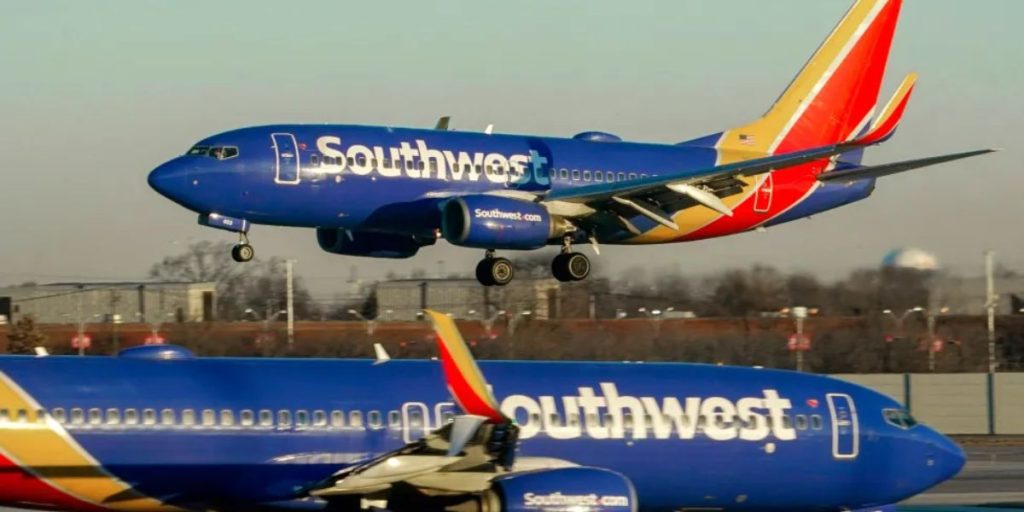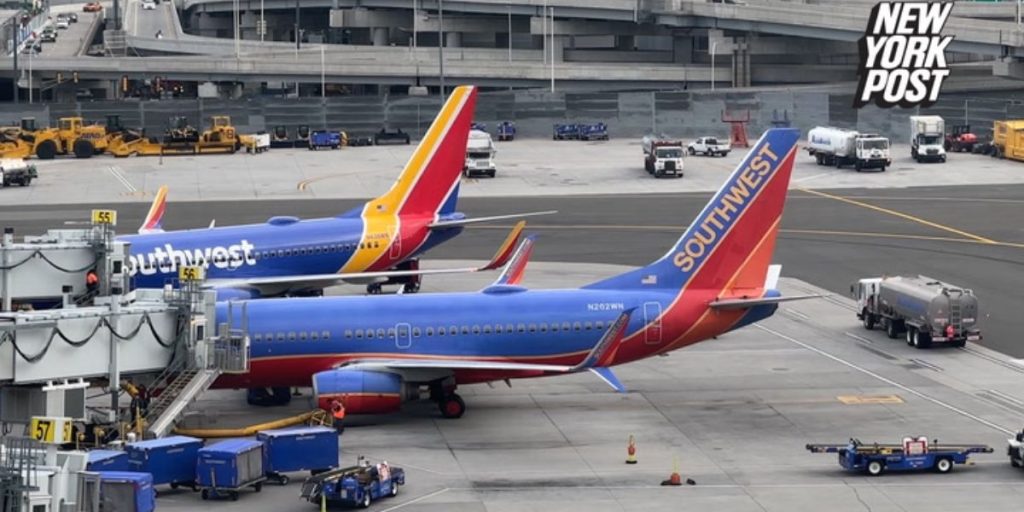Southwest Airlines announced Thursday that it will cut 2,000 jobs and close four airports after warning of increased expenses and slower revenue growth due to a slowdown in new aircraft deliveries from Boeing.
The Dallas-based airline said it will receive only 20 aircraft from Boeing this year, down from 46 expected in March, as the aviation giant deals with a safety crisis prompted by a January mid-air cabin panel burst on an Alaska Air flight.
Regulators have capped 737 MAX manufacturing, but the business is failing to meet even that target, according to Reuters this month.
“The recent news from Boeing regarding further aircraft delivery delays presents significant challenges for both 2024 and 2025,” Southwest CEO Bob Jordan stated in the company’s first-quarter financial results release.

Southwest intends to discontinue flights to Syracuse, New York; Cozumel, Mexico; Bellingham, Washington; and George Bush Intercontinental Airport in Houston, where the airline’s primary operation is at the smaller Hobby Airport.
The corporation also stated that it plans to complete the year with 2,000 fewer employees than at the start of the year.
The headcount reduction is part of a bigger cost-cutting strategy to counter recent losses, and Southwest will also curtail its voluntary time-off programs.
Southwest shares plummeted over 7% on Thursday, closing at $27.26.
Southwest Airlines, which flies an all-Boeing fleet, now forecasts total seat capacity to increase by 4% year on year in 2024, up from 6% previously predicted.
The business stated the schedule changes will not only result in slower-than-expected revenue growth this year compared to the previous year, but will also result in higher-than-expected operational costs.
Southwest is attempting to increase productivity and restrict discretionary spending in order to mitigate the damage.
Aside from ending service to the four airports, Southwest will also reduce capacity in cities such as Chicago and Atlanta.
Southwest posted an adjusted loss of 36 cents per share in the first quarter. According to LSEG statistics, analysts expected an average loss of 34 cents.

Southwest was the first low-cost, no-frills airline, with a single economy class cabin and no assigned seats.
However, while other airlines have added costs for everything from checking baggage to booking a seat assignment and upgrading to economy plus, Southwest has maintained a one-size-fits-all policy with one exception: charging more to board the plane early.
Jordan stated that the corporation is reviewing its practices.
“We’re looking into new initiatives, such as how we seat and board our aircraft,” Jordan told CNBC following the company’s poor earnings release.
Southwest does not even charge passengers for the first two checked baggage.
“Only months ago, they would have been dismissive of the idea of charging more for extras,” Craig Jenks, CEO of New York-based consulting firm Airline/Aircraft Projects Inc., told the Post. “The idea of ‘I’m a big shot and need more leg room’ is against what Southwest has always stood for.”
Southwest has also cut the amount of transcontinental flights (those lasting more than five hours) to 1.3% of its seats, down from 4.4% in 2017.
According to Jenks, the average flight time for the carrier is two hours and ten minutes, whereas JetBlue’s is three hours and twenty minutes and Alaska Airlines’ is three hours and forty minutes.
“Southwest can’t attract wealthy, higher paying passengers because it doesn’t have these levers that other airlines are pulling,” he said.
American reported a $312 million loss as personnel expenditures jumped 18%, totaling over $600 million. The airline plans to return to profitability in the second quarter, which is a busier time for travel, with earnings ranging from $1.15 to $1.45 per share. According to FactSet, analysts predict $1.15 per share.
The first-quarter loss of 34 cents per share, excluding extraordinary items, was higher than analysts’ projection of 27 cents per share.